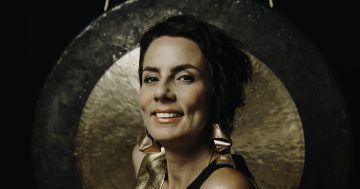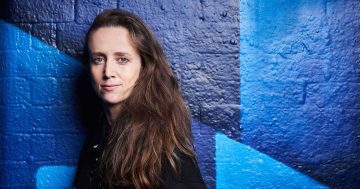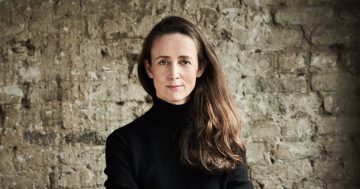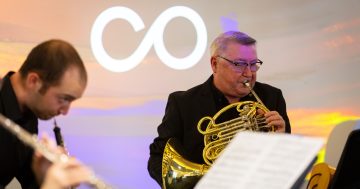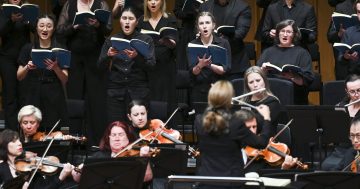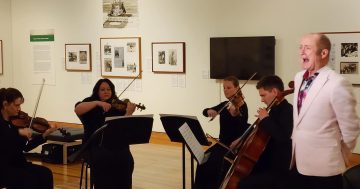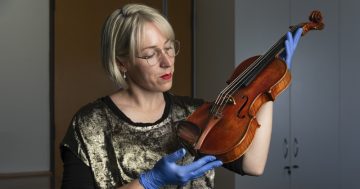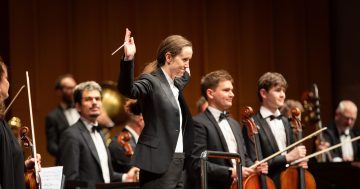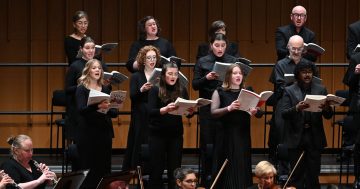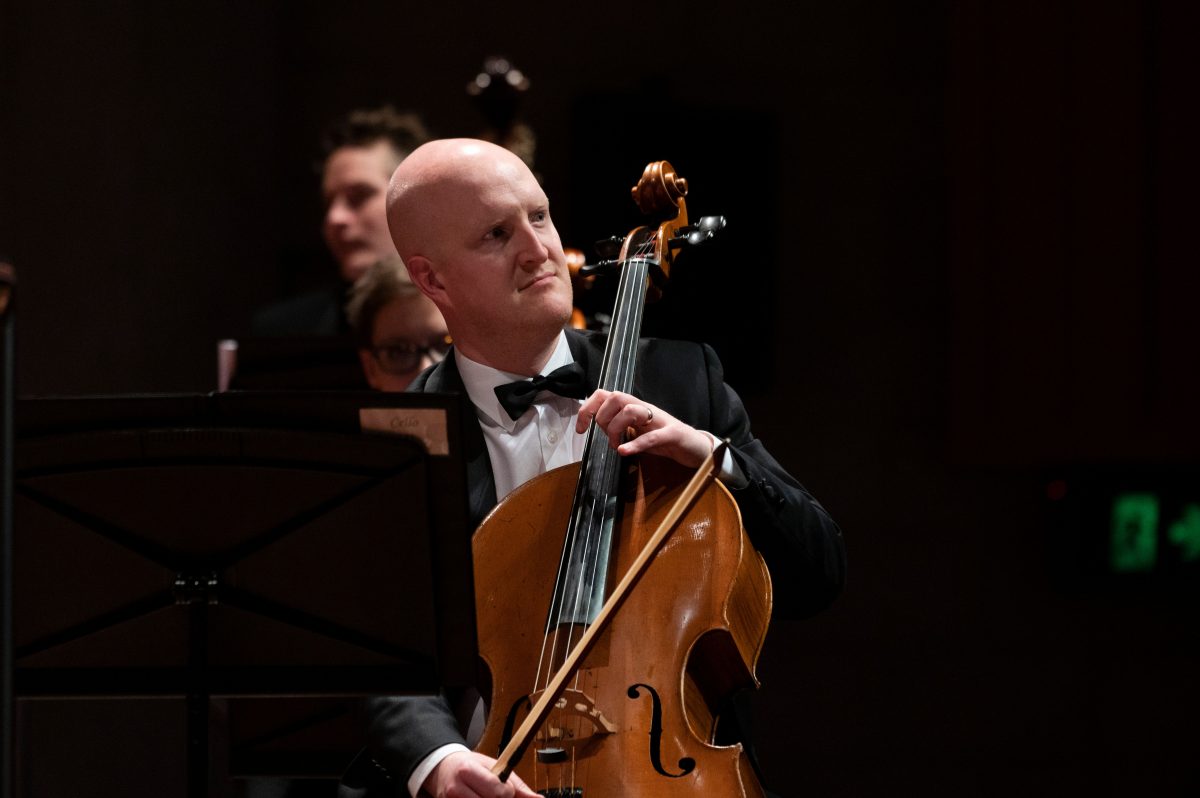
Principal cellist with the Canberra Symphony Orchestra Patrick Suthers is also a senior public servant. Photo: Martin Ollman.
It’s an impressive balancing act from one of Canberra’s most outstanding musicians and senior public servants.
Principal cellist with the Canberra Symphony Orchestra Patrick Suthers shares twin careers as an Acting Assistant Secretary in Prime Minister and Cabinet.
The spotlight will be on Suthers and the cello when he and the CSO perform for the first time anywhere Beyond the ridge, the ranges far by Australian composer Harry Sdraulig.
It is part of the CSO’s Electric Blue concert under the baton of chief conductor and artistic director Jessica Cottis at Llewellyn Hall on 26 and 27 April.
Canberra couple Gisela Pullen and Karl Gordon commissioned the work, which is dedicated to Gisela.
Also on the bill will be another world premiere from an Australian composer, Kinds of Blue by Miriama Young; Alexander Scriabin’s F-sharp Minor Piano Concerto, featuring Sine Winther, one of Australia’s leading young pianists; and the centrepiece, Scheherazade by Rimsky-Korsakov.
Suthers first came to Canberra to study at the ANU School of Music, where he met his viola-playing wife, Caroline, who also plays with the CSO.
He studied with David Pereira and Julian Smiles, graduating with First Class Honours and a University Medal.
The couple pursued their musical careers elsewhere, including stints for Suthers with the Sydney, Queensland and Tasmanian Symphony Orchestras and an SSO Fellowship when the Ensemble gave private performances for Pope Benedict XVI in 2008.
They returned to Canberra in 2012 with Suthers as principal cellist, who then embarked on a second career with the APS through its graduate program.
The parallel careers have blossomed into a “virtuous arrangement for both”.
But it takes planning and organisation, and support from colleagues, family and friends.
“CSO rehearses seasonally, rather than every week, and is predominantly evening and weekend work so that mostly avoids clashes with my APS role,” he says.
“I have very capable, supportive APS colleagues who know when I’m going to be unavailable for those periods, and at the start of each year, my wife Caroline and I work out who can look after our two boys any seasons we’re both playing.
“Both sets of grandparents are very generous in coming to Canberra, and we have a terrific babysitter.”
It also means preparing for a performance comes in intensive bursts rather than daily practice, so being super-efficient, and most importantly, mentally prepared, is non-negotiable.
“I do a lot of listening to music that I’ll be playing while reading the score, and then really targeted practice where there are exposed passages and technically difficult sections,” says Suthers, who practises mostly at night when the children are asleep.
“One focus of my preparation is being able to play well the first time without relying physically or mentally on warm-up routines.”
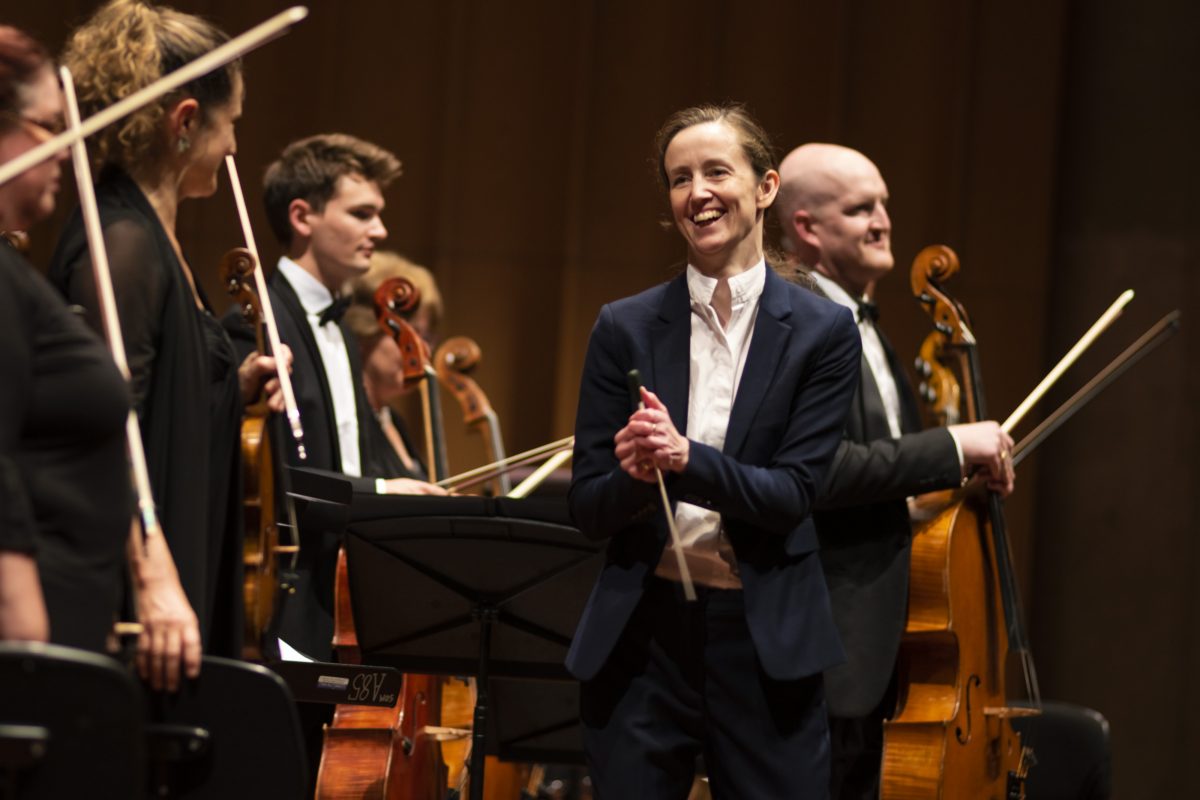
CSO chief conductor and artistic director Jessica Cottis with the orchestra and Suthers.
Moving between the worlds of high-level government, music and family brings valuable balance and perspective.
It helps that Suthers can immerse himself fully in each setting when he focuses, with the shifts enriching the others and helping him prioritise what’s important.
“If I’m focusing on practising or performing a great symphony, the rest of the world melts away for a while, and when I’m finished, I can come back to a challenge at work or something important home with calm, clarity, and a fresh perspective – the small stuff has to fall away,” he says.
Suthers first played the cello at age four, but his child’s mind coveted the biggest string instrument, the double bass.
“There was a little white lie told that all good double bass players started on cello that I think had a lot to do with the small size of mum and dad’s car, but after a few cello lessons hiding under my first teacher’s coffee table, my relationship with the cello began,” he recalls.
It’s an instrument audiences love. Suthers believes it’s because the tone is akin to the human voice, and for him, he loves its versatility.
“I think there’s also something aesthetically pleasing about the instrument itself and the elegant, ergonomic movements of people playing it.
“I also like the way its role can switch between bassline, texture and melody, often quite frequently.”
The Sdraulig work will showcase the cello and Suther has begun practising his part ahead of full rehearsals with the CSO.
“I had the pleasure of playing an early sketch of one section for Karl and Gisela, the lovely Canberra couple who commissioned the work, and for Harry earlier in March,” he says
Audiences can expect a very Canberra work, inspired by the ACT’s surrounding mountain ranges and views and capturing their majestic, natural and spacious feeling.
“Harry creates his own contemporary Australian sound world, creating melodies, harmonies and structures that are approachable and accessible, with very thoughtful, interesting textures and conversational elements between the instruments,” he says.
“It’s a rare honour to have the opportunity to perform anything as a soloist with an orchestra, and I’m looking forward to exploring the emotional range of the work.”
Interestingly, while Suthers loves performing a wide range of musical styles in a variety of settings, listening for relaxation often doesn’t include classical as it sets off his analytical mind.
“I’m much more likely to listen to rock, pop, hip-hop, or electronic music if I’m out for a run or on a road trip,” he says.
There are no family recitals yet, but his eldest son is following him in learning the cello while the youngest is still to decide if he’d like to take up an instrument.
Outside of music and the APS, the family explores Canberra’s cafes and restaurants, and its bushland and green spaces.
Both he and his wife enjoy film and stand-up comedy, and Suthers plays golf with workmates, and just to keep the wheels turning, he has started to learn French.
For more information about the CSO, including Electric Blue at Llewellyn Hall on 26 and 27 April., visit CSO.












